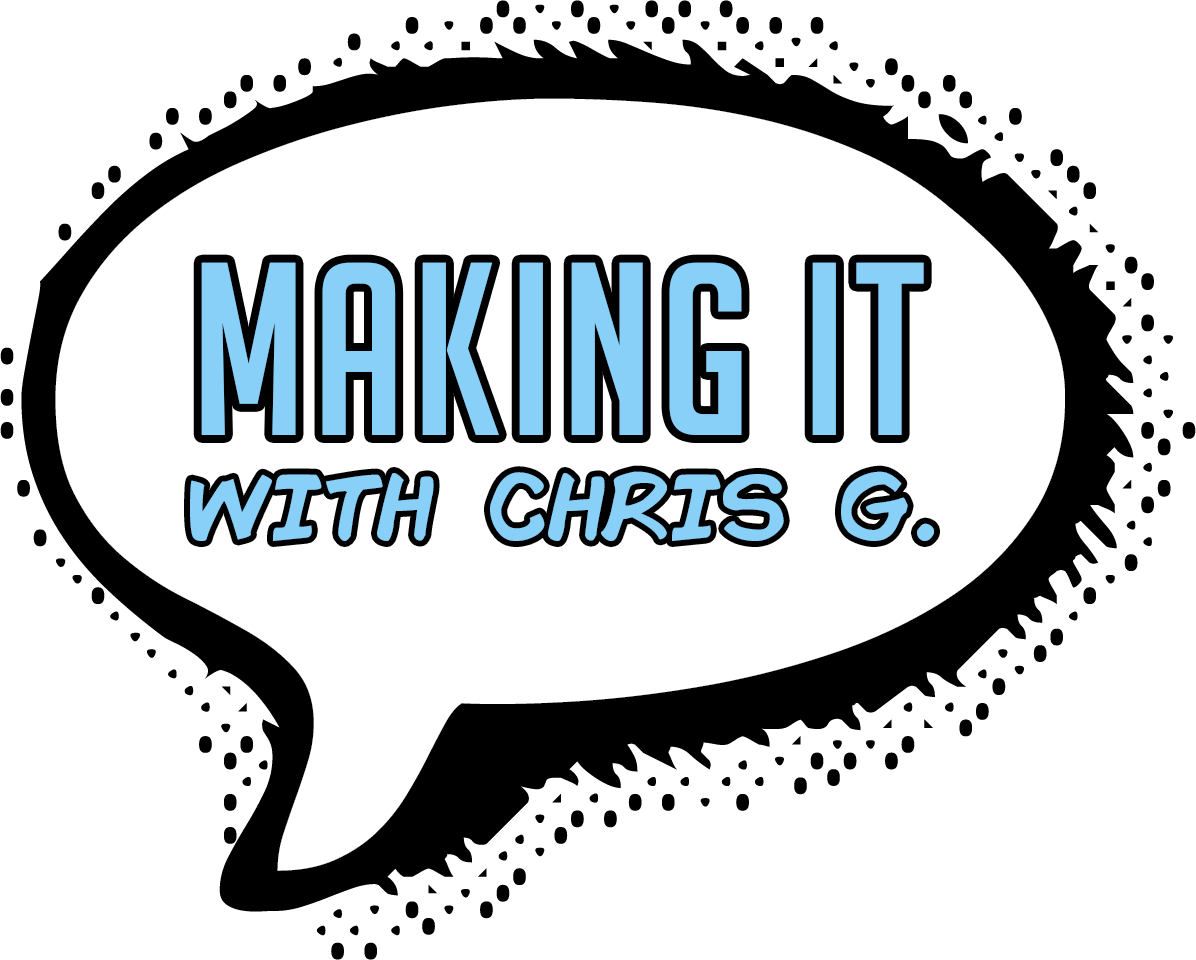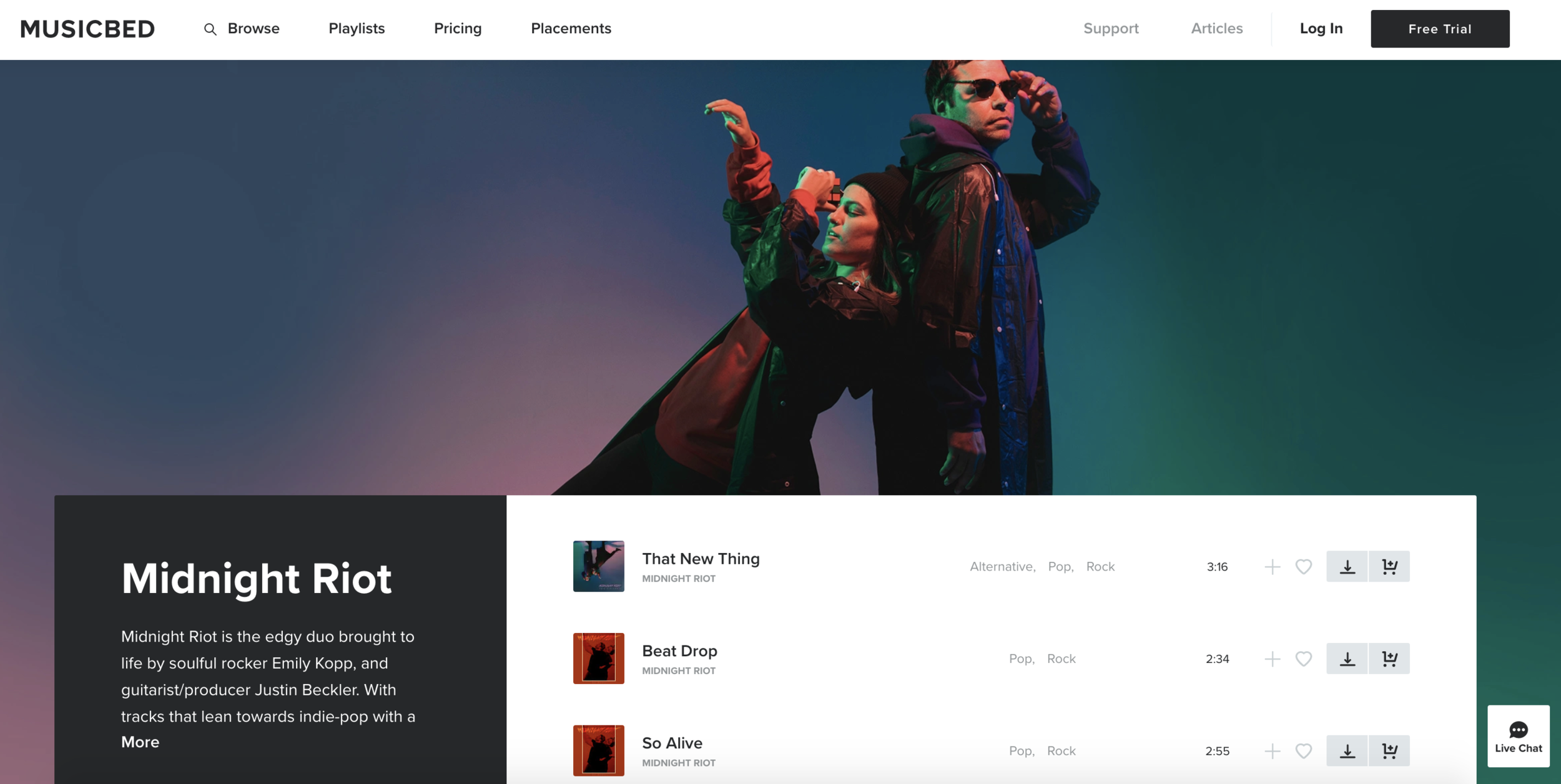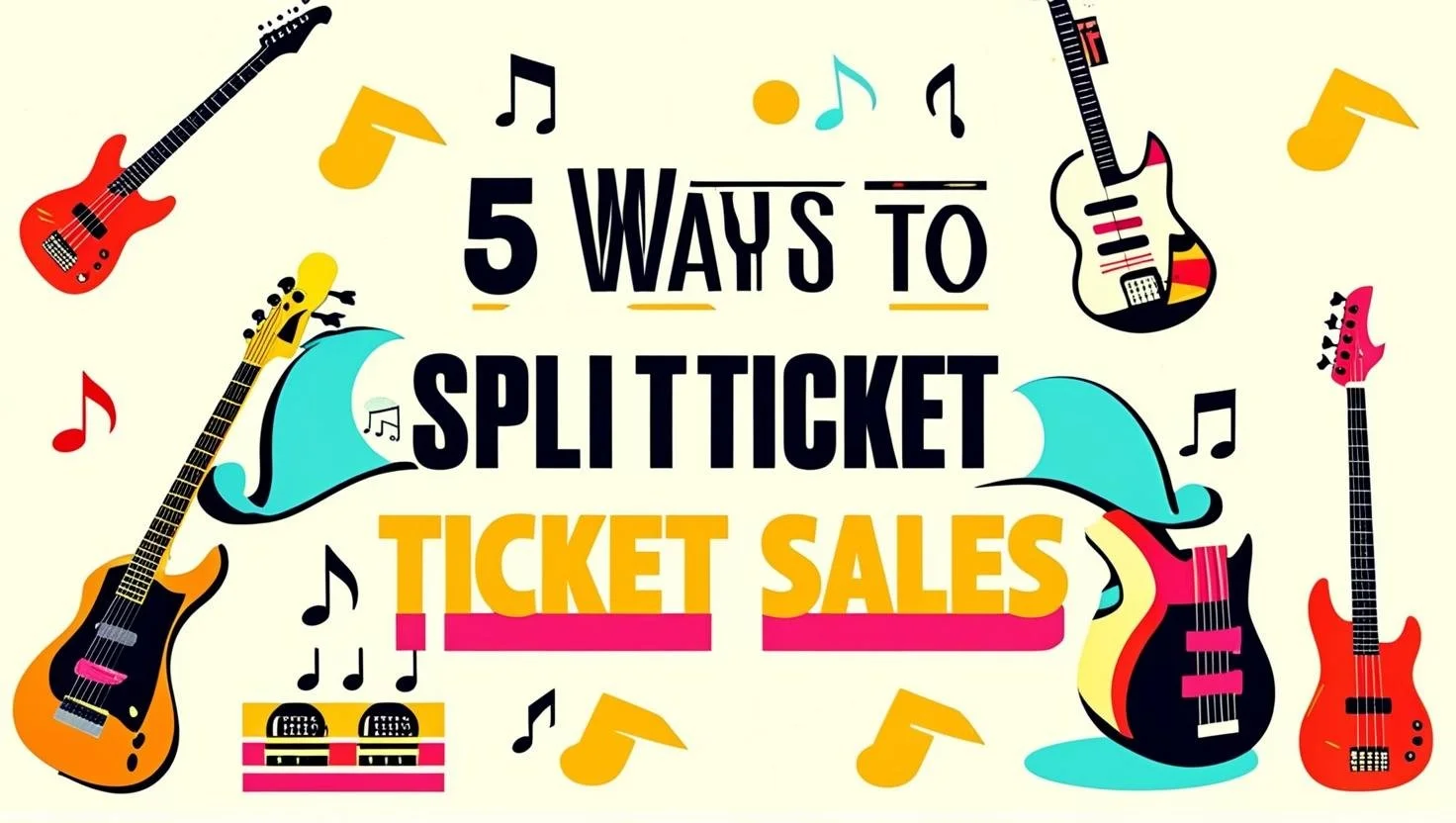10 Ways Musicians Can Make Money from Home (Plus Over 30 Side Hustles)
/There are many ways in today’s music business that musicians can earn money from home, and there are lots of articles about it on the internet. I wanted to focus this article on how musicians can make money without ever leaving their home, along with some bonus side hustles. Let’s say there is some reason you can’t leave your house, such as kids and having to take care of your family, recovering from an injury, or some crazy virus outbreak and we’re all being quarantined. Whatever the reason, there are so many ways that musicians can make money from home. Don’t forget, that every musician is a small business, and therefore, every musician is an entrepreneur.
One of the key lessons I’ve learned about entrepreneurship or really just life is to always have multiple streams of income. The reason or philosophy behind this could be an entire different blog post, but to keep it simple, it’s never a good idea to put all your eggs in one basket or bet all of your money on one stock. You never know what can happen to one of your revenue streams. As an entrepreneur the amount of revenue you make each month, or each season fluctuates constantly. There is no consistency or guarantee. If you rely too heavily on one revenue stream, that’s like a death sentence. Even if you work for a small business or large corporation, your next paycheck is never a guarantee. There is always the chance for layoffs, and those usually don’t come with any time to prepare. And if you work for someone else, and that’s your only revenue stream, it’s scary to think that you could go to zero overnight.
Below are 10 of my favorite side hustles musicians can use to earn more money and expand their brand. I also threw in a list of honorable mentions/other ways artists can earn money from home, along with a few side hustles that aren’t necessarily music related. Sometimes it takes time to build up music specific revenue streams, which inspired me to share some additional side hustles. So, let’s dive in…
YouTube
This is my favorite, because it’s not only a way to generate additional income, but it also expands your brand. The key with creating content for YouTube is consistency. You want to put out at least one video per week, and up to three per week. These don’t need to be very long or overcomplicated. The key part here is to quit planning and just start. From there you work on getting 1% better with each following video. These days it’s really easy to either shoot a video with your phone or get a decent camera for not a ton of money. Also, there are so many different editing tools out there these days to make it really easy to edit your videos.
There are so many different types of content you can create with video to keep it diversified and interesting. These include covers, demos of new originals, lyric videos, music videos, Vlogs of a behind the scenes look of your journey, educational videos, or music tutorials. Key thing here is to know your audience and deliver content that will bring them value. The key ways to offer someone value through your content is entertainment or education. So, the question to ask yourself before creating content is, what would be entertaining to your audience or what do they want to learn about?
One last disclaimer here, you need at least 1,000 subscribers to monetize your YouTube channel, and you get paid per 1,000 views. This is something that’ll take time to build up, but I’m a big believer that becoming a consistent content creator on YouTube is a major win for musicians.
Two of my favorite examples of musicians getting creative with YouTube are Tash Sultana and the Smart Rapper, Rob Level.
Tash Sultana has all kinds of beautiful videos from music videos, to vlogs, to documentary styles videos where she shares her story. Here is an example.
The Smart Rapper is Hip-Hop artist Rob Level. He has a YouTube channel where he shares music business advice for aspiring hip-hop artists. He also has an artist YouTube channel where he shares anything from lyric videos to vlogs to music videos and remixes. Here is an example of each.
Facebook Live
One of my favorite ways for musicians to create consistent content, and ways to earn money right away. This doesn’t need to be just Facebook Live. It can be YouTube Live, Instagram Live, or whatever live platform you prefer. You can make a lot of money going live. One of my favorite guests on the podcast was Dawn Beyer. She’s made over $50,000 in one year doing Facebook Live Concerts, and she offers an amazing course on how other musicians can do the same. The key here again is consistency. Dawn used to go live on her Facebook page every single day. I suggest going Live at least once a week, but three times a week can be better. To monetize, all you need to do is set-up a virtual tip jar. You can do this easily with PayPal, or whatever your favorite app is. There are also apps available online for this, or you can even just set this up through Square or adding your venom or Cash App account. Dawn Beyer uses PayPal.
These don’t need to be long sessions. I suggest keeping these to three to five songs. One of the keys to making this successful is to engage with your audience. Watch one of Dawn’s videos and watch the master at it. You can engage by asking questions or even keeping it as simple as just acknowledging them when they join the live session.
A sample format could be – short instrumental music while acknowledging people as they join the session, followed by a song, then short Q&A/Engagement, another song, Q&A/Engagement, one more song, and end with a call to action. This can be as simple as sign-up for my email list to find out about future Facebook Live Events or any other value you can deliver to your mailing list. To get started here, I suggest you start from your personal Facebook page, and direct people to your artist page. You can even start by doing one per week on your personal page and one per week on your artist page. In the beginning, most of your audience will be your friends and family that follow you on your personal page, which is why I suggest starting there. See the master Dawn Beyer in action in this video. Click here to go to her Facebook page, donate, and see how she sets up her Facebook Live events.
Podcasting
Another great platform for content and brand building. My favorite marketer, Mark Schaeffer, wrote an amazing book on content strategies called KNOWN. In this book, he discusses how it typically takes 18 months to 2 years to start earning income from a content-focused business. So, this or YouTube, may not be a way to earn money from home right away, but there are so many other benefits to having a podcast and being a content creator. It’s a powerful way to build a brand and a community. Whether large or small, it’s a great way to build loyal followers. Down the road, the main way to earn money from podcasting is through sponsors.
You don’t have to be a top 10 podcast to start monetizing either. You can start to monetize with as little as 500 weekly listeners. It may not be much, but it could cover your distribution and website hosting costs. Down the road, the best way to layout the pricing for your podcast is the per 1,000 listeners model. If you were to hire an outside company to handle this for you, they’ll typically charge from $7-12/1,000 downloads. Tim Ferriss has mentioned on his show that he typically focuses on more high-end products for his audience, and therefore may charge from $15-20/1,000 downloads. For some simple math, say you charge $10/1,000 downloads, and you have 10,000 weekly downloads, that would be $100 for one spot. Typically, most podcasters will have anywhere from 2-4 sponsors per episode. You don’t want to overkill it here and make it all about money. The ultimate goal should be focusing on bringing value to your audience, which will, in turn, bring more listeners, which results in higher revenue per episode.
One of my favorite examples here is Andy Grammer’s podcast The Good Parts.
Writing for Music Libraries
This is basically synch licensing - adding music to videos. There are a lot of low budget opportunities for synch licenses such as independent movies, small companies running ads on TV, YouTube, or other online platforms, as well as people creating videos for weddings, private parties, etc. A music library is a place where you upload your music that can be discovered by individuals or companies that want to use music for a video. There are a few different music libraries out there such as Triple Scoop Music, Audiosocket, Rumblefish (which is owned by Harry Fox), Shutterstock, Animoto, and Musicbed (this list is from Ari Herstand’s book “How to Make it In the New Music Business). Most of these platforms will require some kind of application and approval process for their service. Make sure to have an instrumental version for each of your songs, and that they’re final mastered versions.
You can write albums specifically for the music libraries, or you can upload your albums that you have released publicly. One of my good friends, Emily Kopp who has been on the podcast, has a lot of success with Music Bed, one of the biggest music libraries. She is one of their artists that signed to an exclusive licensing deal with the company that they pitch and writes specific albums for them under the artist name, Midnight Riot.
Merchandise
This one is pretty straightforward. Create merch you can sell online. If you don’t want to carry an inventory, you can outsource your merch to a print on demand service. The best way is to created limited releases of different designs and types of merch. Even handcrafted items can be very popular when creating different merch throughout the year. You don’t have to only release new merch with an album or tour. You can create merch around singles, other types content you’ve released, around your blog, podcast, or YouTube channel, seasons of the year, and many other scenarios. The key thing is to choose merch releases that are relevant to your brand.
Online Music Lessons
Giving music lessons online can be an instant moneymaker form home. People are always looking to learn an instrument and a lot of people who may never have an intention to write music or play out live. There are millions of hobby musicians that are looking for lessons in all types of instruments. You can host lessons via platforms such as Skype, Zoom, or any other type of platform that has a live video chat feature. My favorite is Zoom because you can share documents along with the videos there as well in real-time. It’s the platform I use for teaching.
Subscriptions / Patreon
The best type of customer is a repeat customer. This is where having a paid subscription service or Patreon account comes in really great. Making money with subscriptions is how companies such as Netflix have put Blockbuster out of business, and quickly become a world leader in streaming and original video content. This is how companies grow very quickly. If you had 1,000 true fans who paid you $10/month, that’s $10k per month, and $120k per year (check out Kevin Kelly’s article 1,000 True Fans). You could have a subscription plan for your merch, content, live online performances, custom songs, or any other value you can offer to your audience. Having a subscription service such as Patreon or a self-run one, this can create a very nice foundation for your music career, that can quickly help you become a full-time musician.
Producing Beats
Another one that’s very straightforward. Create beats and sell them online. This can become a great side hustle. Not only will this practice of creating beats give you more practice towards your 10,000+ hours, and it can be a very lucrative business as you become a better and better producer. Also, it’ll open a lot of doors to potential artists you can collaborate with and tour with.
Fiverr/Upwork
In today’s music business, musicians possess many skills. We often have to create our own fliers, websites, or edit our own videos or audio. This gives us a lot of practice and improved those design and editing skills. You can use this to your advantage and sell your services to create fliers, websites, or edit videos or audio for others on platforms such as Fiverr or Upwork. You can produce podcasts, again create beats, to fliers, videos, promo materials, and so much more.=
Write for Music Blogs
Again, in today’s world of DIY musicians, you acquire an endless amount of music business skills. Usually, artists are their own first manager, booking agent, publicist, label, etc. The longer you have been doing it, the more you have learned in these categories. Everyone has their own unique experience and way of sharing that experience. If you’re passionate about writing outside of music and teaching others, there is a great way to make some additional cash. This can usually pay anywhere from $25-100 per article. The best thing to do here is to be proactive by writing articles in advance, and sharing those with and pitching them to different blogs. Blogs are always looking for content and new writers with a different perspective.
One of the most successful artists with this is Ari Herstand, who has a very popular DIY music blog Ari’s Take.
List of honorable mentions –
1. Crowdfunding
2. Streaming
3. Synch Licensing for TV, Film, Video Games or Commercials
4. Sound Design – check out my podcast with Kristen Agee
5. Public Performance Royalties
6. SoundExchange for Digital Royalties from Non-Interactive Streaming
7. Sponsorships
8. Music Grants
9. Songwriting online
10. Transcribe Music for Others
11. Write Ebooks
12. Create a Blog
13. Create Ringtones
14. Writing and Produce jingles
BONUS: Non-Music Side Hustles
I’ll keep these quick and short, but here are some additional side hustles to earn some extra cash from home.
Affiliate Marketing
Affiliate marketing is when you promote and share other companies’ products and get a percentage when someone buys something. The most popular affiliate program is through Amazon. You can share links to products sold on Amazon and earn a commission from when people buy that product (gear you use, books you’ve read, products you use, etc.). For example, my favorite book on creating content is KNOWN by Mark Schaffer. Check out this awesome book below and help support the cause and keep this blog and podcast going. Thank you!
Just search affiliate marketing on google, and you’ll find all kinds of great programs. You can even set something up with someone that is offering a course.
Transcriptionist
A transcriptionist turns an audio file into text. There are several companies out there where you can get paid anywhere from $15-25/hr to transcribe lectures, podcasts, and other audio content into text.
Teaching Languages
There are so many platforms these days where you can teach English or another language if you’re bilingual or multilingual, such as Rosetta Stone.
Airbnb
The ultimate side hustle and house hack. If I were to give my younger self advice, I would tell myself to buy a 3-bedroom house in college and rent out the other two bedrooms. If you spend a lot of time on the road, you can rent out your house and not only pay your mortgage, but also make a profit while on the road.
Virtual Assistant
Lots of small businesses and entrepreneurs can’t afford a full-time assistant, so you can outsource as little as 5 hours per week or more to a virtual assistant. These virtual assistants can earn anywhere from $10-20/hr.
List of Side Hustle Honorable Mentions –
These do not necessarily work from home side hustles, but here are some other options on how to earn money on your own terms.
1. Dog Sitting/Walking with Rover or Wag
2. Food Delivery with Postmates, Uber Eats, DoorDash, GrubHub, Tapingo, Clustertruck, or Caviar
3. Delivery – Amazon Fled Roadie, Deliv
4. Grocery Delivery – Instacart, Shipt,
5. Picture-taking Apps – Job Spotter, Field Agent, and Gigwalk
6. Receipts Apps – Fetch, Receipt Hog, and ReceiptPal
7. Scooter Charging – Brid, Lime, etc.
8. Secret Shopper Apps – IsecretShop or Marketforce
9. Flipping Products Online from Yard Sales or Pawn Shops
Please share any of your favorite side hustles and ways to earn money from home in the comments.












